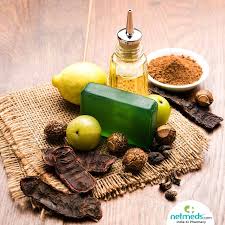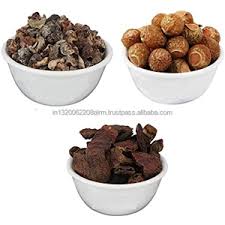In the pursuit of beautiful, glowing skin, Ayurveda offers a natural, holistic approach that nurtures your skin from the inside out. Unlike conventional skincare products, Ayurvedic skin care uses time-tested herbs, oils, and remedies to balance the body’s internal energies, resulting in clear, radiant skin. At Dirghaanshi, we delve into the science behind Ayurvedic skincare practices and how they can transform your skin health.
Ayurvedic skin care is built on the idea of balance—balancing your doshas (body energies), nourishing your skin with natural ingredients, and maintaining internal health to achieve glowing, healthy skin. With a focus on natural herbs and oils, Ayurvedic skincare remedies have been used for thousands of years to address a variety of skin concerns such as acne, dryness, premature aging, and pigmentation.
Here are some of the most effective Ayurvedic practices and ingredients for healthy, radiant skin:
1. Understanding Your Dosha: The Key to Personalized Skin Care
Ayurveda categorizes individuals into three main doshas: Vata, Pitta, and Kapha. Each dosha has specific skin characteristics and needs. By determining your dosha, you can create a personalized skincare routine that addresses your skin type's unique requirements.
Dosha-Specific Skin Care:
- Vata: Dry, rough, or sensitive skin requiring deep moisturizing.
- Pitta: Oily, acne-prone, or inflamed skin needing cooling and soothing.
- Kapha: Oily, congested skin needing detoxification and exfoliation.
2. Herbal Oils for Skin Nourishment
Ayurvedic oils are known for their nourishing and healing properties. Oils like Sesame Oil, Coconut Oil, and Almond Oil are commonly used to moisturize, hydrate, and rejuvenate the skin. These oils are rich in antioxidants, essential fatty acids, and vitamins that help repair damaged skin and prevent premature aging.
Benefits of Ayurvedic Oils:
- Sesame Oil – Antioxidant-rich, deeply nourishes the skin and promotes a healthy glow.
- Coconut Oil – Hydrates and heals, making it perfect for dry or damaged skin.
- Almond Oil – Lightens dark spots and smoothens the skin.
3. Turmeric: The Golden Elixir for Radiant Skin
Turmeric is a powerhouse ingredient in Ayurvedic skin care due to its anti-inflammatory, antioxidant, and antibacterial properties. It has been used for centuries to reduce pigmentation, fight acne, and brighten the complexion. Turmeric helps in calming irritated skin, reducing blemishes, and improving overall skin tone.
Benefits of Turmeric:
- Reduces acne and blemishes.
- Soothes inflammation and redness.
- Evens out skin tone and brightens the complexion.
4. Aloe Vera: Cooling and Hydrating Skin Healer
Aloe Vera is widely used in Ayurveda for its cooling and soothing properties. It helps hydrate and calm irritated or sun-damaged skin while promoting the regeneration of skin cells. Aloe Vera also helps to reduce the appearance of fine lines and wrinkles, making it an essential component of Ayurvedic skincare.
Benefits of Aloe Vera:
- Soothes sunburns and irritation.
- Hydrates dry skin and balances moisture levels.
- Promotes healing and reduces signs of aging.
5. Neem: The Natural Acne Fighter
Neem is a powerful herb in Ayurveda used for its antimicrobial and antibacterial properties. It is often used to treat acne and skin infections by purifying the blood and detoxifying the skin. Neem is excellent for purifying the skin, reducing blemishes, and preventing breakouts.
Benefits of Neem:
- Fights acne-causing bacteria.
- Detoxifies the skin and promotes a clearer complexion.
- Soothes irritated skin and reduces inflammation.
6. Rose Water: The Skin Tonic for Refreshing and Hydration
Rose Water has been used in Ayurveda for centuries as a natural astringent and skin toner. It is known for its ability to balance the skin's pH, hydrate, and refresh the skin. Rose water also helps to soothe redness and irritation while maintaining a healthy, glowing complexion.
Benefits of Rose Water:
- Hydrates and refreshes the skin.
- Balances the skin’s pH levels.
- Reduces skin redness and irritation.
7. Ayurvedic Face Masks: Deep Cleansing and Nourishing Treatments
Face masks made from ingredients like Multani Mitti (Fuller’s Earth), Honey, and Sandalwood are common in Ayurvedic skin care for detoxifying, exfoliating, and nourishing the skin. These masks help draw out impurities, unclog pores, and improve skin texture.
Benefits of Ayurvedic Face Masks:
- Draw out impurities and toxins.
- Reduce acne and skin breakouts.
- Provide deep hydration and nourishment.
8. Diet and Lifestyle: Inner Health Reflects on Your Skin
Ayurveda emphasizes the connection between internal health and external beauty. Eating a balanced, dosha-appropriate diet and living a healthy lifestyle is key to achieving radiant skin. Hydration, stress management, and adequate sleep are essential for maintaining healthy skin from within.
Dietary Tips for Healthy Skin:
- Include foods rich in antioxidants like berries and leafy greens.
- Drink plenty of water and herbal teas.
- Avoid processed foods and sugary snacks.
Conclusion:
Ayurvedic skin care is not just about using external products but focusing on overall well-being. By incorporating Ayurvedic herbs, oils, and holistic practices into your daily routine, you can achieve vibrant, healthy skin. Embrace Ayurveda’s timeless wisdom and discover the secret to naturally glowing, beautiful skin.












